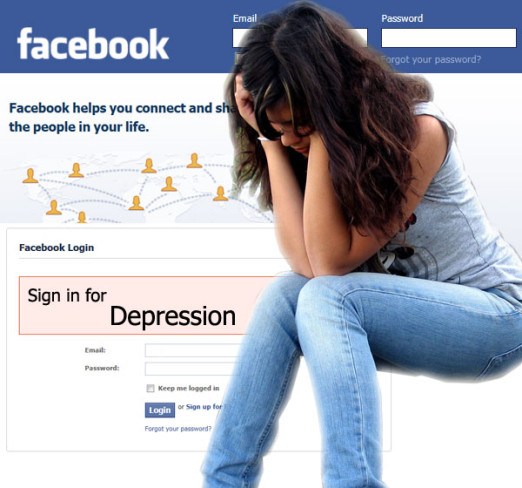By Amartya Prasad
When was the last time you checked your facebook ?? I’ll guess, right now. You probably have it open on another tab while you read this article!
Facebook gained popularity as a social networking site around 2007 and has since expanded exponentially both in terms of number of users and the amount of time a person spends on Facebook each day. All of us, spend so much time on Facebook that it would be wrong to label one as a “Facebook addict”. We’re all in fact facebook addicts.
Facebook is now widely touted as a direct cause of depression. Ask yourself this- When was the last time going on facebook made you happy, or even brought a smile on your face? We go on facebook when we want a temporary respite from their otherwise boring, mundane lives. Going on facebook may make us feel that we are not alone, that we’re surrounded by people. However, what we don’t realise is that more often than not, we end up in worse mood, feeling lonelier and sadder than before.
When we go to facebook, we see happy, smiling pictures of our friends, family, acquaintances alike.. They make us feel inadequate and our lives empty. We get jealous and morose after looking at how happy everyone around us is, with active social lives and boasts about accomplishments. Naturally, we begin to compare our lives to the lives of the people in those pictures. This can cause severe depression.
In fact 90 % of teenagers in the US who use facebook report lower self-esteem and some level of depression after going on facebook. It is common knowledge that cases of childhood/teenage depression have escalated dramatically since Facebook.
If we actually notice, Facebook is no longer about connecting better with friends and family. Rather it is an open popularity contest to see who can attract more likes and comments on their posts and pictures. If we get plenty of likes/comments, we experience a form of superficial satisfaction, as getting likes/comments apparently equates to being heard and we all have an innate need to be heard. If we don’t we feel saddened. In fact, even the so called ‘popular’ individuals whose posts usually do tend to attract very large number of responses(likes and comments) find that Facebook depresses them.
There are many people who practically live on facebook and getting likes and comments is the sole purpose of their existence. These people live in an online bubble which could burst anytime. Such people will however suffer from low self esteem and lack of confidence in the long run.
While facebook may have brought us all closer a whole, however on an individual level, facebook has instead created invisible barriers. I’m sure you’ll all agree that Facebook has come in our way of establishing deep, real personal relationships. Further, let’s face it, Facebook depresses us a little bit each time we go online. I guess, It would be safe to say that moderate to heavy Facebook users suffer from low self esteem much more frequently than light/non users.
I do not want this article to be seen as completely anti-Facebook. As a matter of fact, I truly believe that Facebook does have real advantages. Facebook helped me get back in touch with friends from previous schools, some who I hadn’t talked to in over 5 years, living in different parts of the country. Facebook helps me keep aware of what happens in their lives.
What I don’t like however is that each picture/post ends up being a test of how many likes the individual can get.
Such a competition can shatter an individual’s confidence severely and drive him/her to depression. And since most of us spend more than three-fourths of our time on facebook passively browsing through others’ posts as opposed to being actively involved ourselves, it further reinforces a sense of disconnect, jealousy and depression. The more we use facebook, the more dissatisfied and discontented we feel with our own lives.
I would like to conclude by saying that Facebook is not all bad.
What I propose is not that we completely go off facebook. Rather, we reduce our time spent on facebook to a bare minimum and focus more on building real relationships, establish physical contact, cause that is what actually matters.



































